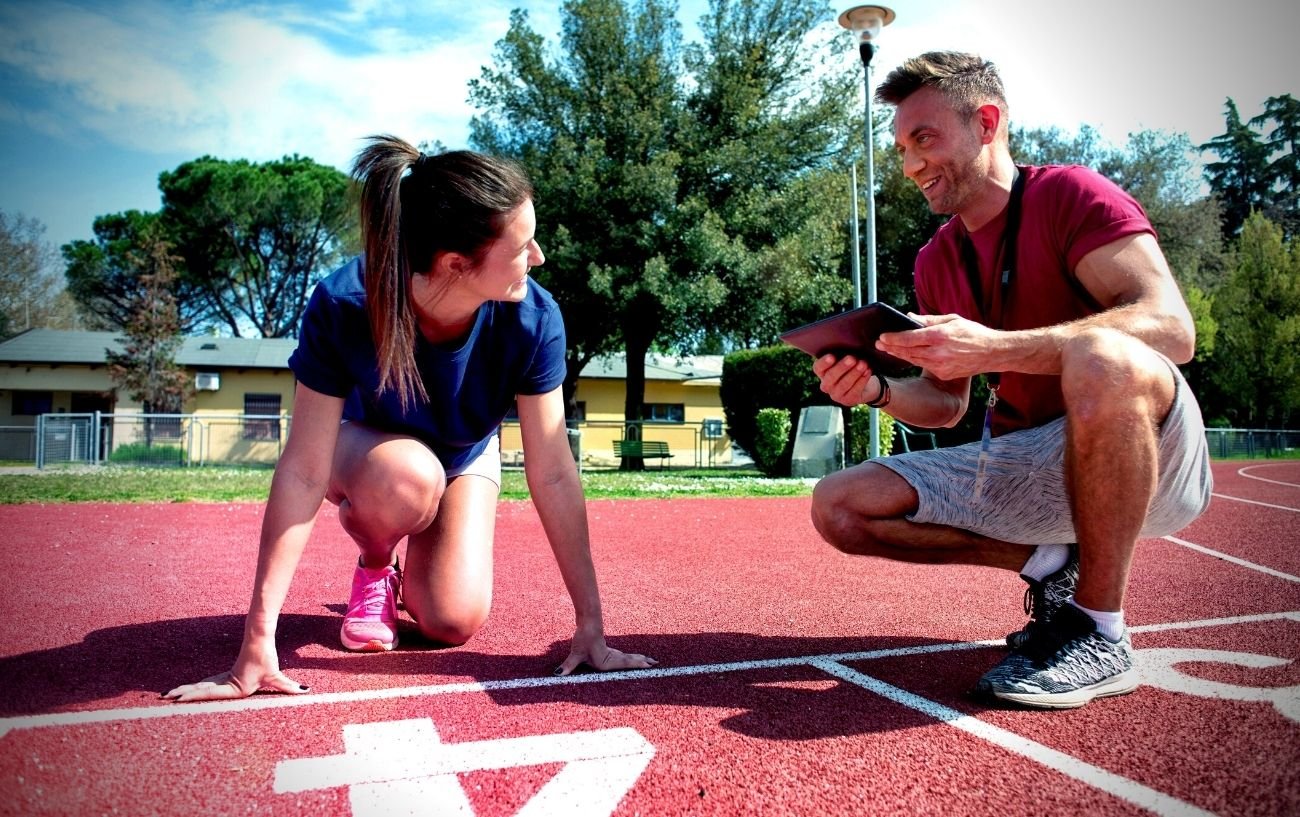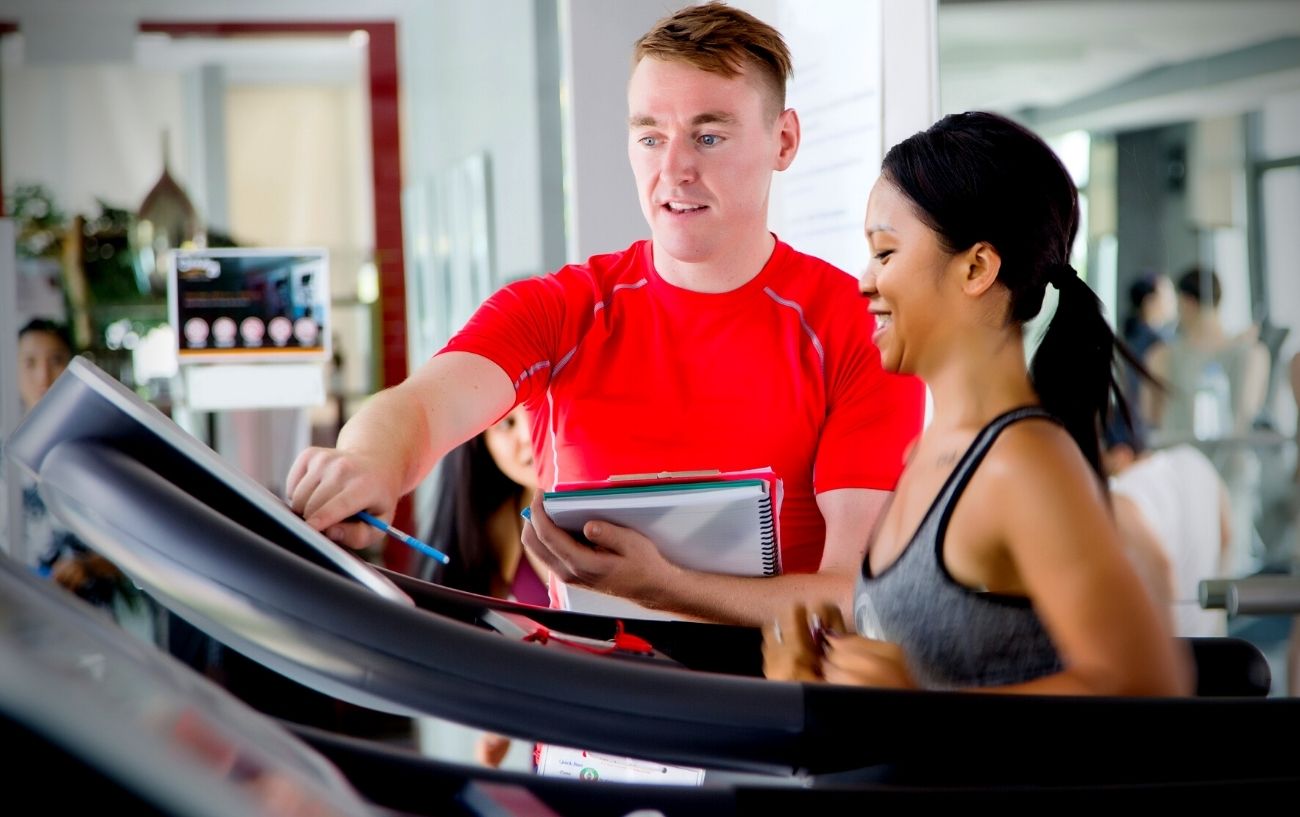
This expert article comes from our friends and partners at UESCA, the leading provider of Endurance Sports Education.
UESCA’s running coach and ultrarunning coach certifications are considered industry-leading, with a science-backed, zero-bias approach.
As the founder of UESCA, a company that educates and certifies running coaches, one of the questions that I get asked the most is, “What should I look for in a running coach?”
Do a Google search for “running coach,” and you’ll find literally hundreds of websites of coaches. Moreover, when you read through the bios of coaches, many of them more or less read the same.
Coaches will often promote their education (degree, certifications, etc…), personal race history and best race times (more on this later), coaching philosophy, and coaching packages.
Due to the similarity between coaching websites, it’s about as clear as mud when it comes to picking one to work with.
Therefore, it is critical to interview any and all prospective coaches to try to gather as much information as you can so that you can make an informed decision.
While there are likely more factors than listed in this post about things to consider when picking a running coach, these 13 factors are ones that I would consider.

#1: In-Person or Remote?
While remote (online) coaching was pretty big before COVID, it is now even a bigger business. There are pluses and minuses to both online and in-person coaching.
Online coaching is great because it offers you a larger number of coaches to choose from, and due to platforms like Zoom, you’re still able to get a personal experience when needed.
The downside is that if you’re looking for someone to meet with you in person, this is obviously not a good option.
However, if you live in a relatively small town, there might not be many or any running coaches in your area. In this case, either your options of running coaches to choose from will be small (or non-existent), and you’ll have to settle for whoever is in your area.
At the end of the day, choosing to work with a coach remotely or in person is a personal decision. I mention this factor first because regardless if the coach is virtual or local, you need to be aware of the other factors in this post.

#2: Clear About Expectations
This is a two-way street and one of the areas that need to be discussed prior to working with a coach.
If expectations are not discussed upfront, it can lead to a whole host of issues, mostly negative, down the road. For example, a coach needs to be very clear about their policies, communication structure, payment guidelines, what they can do for the athlete, etc…
The athlete needs to be upfront with what they expect from the coach, and it is the coach’s responsibility to determine if they can accommodate the athlete BEFORE starting the coaching process.
#3: Knowledge of the Body
One of the main aspects of being a coach is prescribing workouts. In order to properly do so, the coach must have an understanding of the body and how it works.
This is why the “Well, it works for me, so it will work for you” approach is not the correct one since everyone responds differently to the same training stimuli.
At UESCA, we consider the first few modules of all of our certifications to be foundational content. Meaning the content in these modules goes over how the body works with respect to anatomy, physiology, and biomechanics.
While a tad simplistic, the remainder of the modules are the application of the foundational modules.
Whether it be conversing with an athlete about a possible injury or understanding what muscles are involved with the gait cycle, a solid understanding of how the body works is essential for a qualified coach to know.

#4: Personal Results Don’t Matter
This one is a biggie and perhaps one most common ‘errors’ on both the part of the athlete and coach. Let’s start with the coach.
A lot of coaches put their personal records (PRs) on their coaching websites. While there is nothing inherently wrong with this, the connotation is often that if I can run this fast, then I must be qualified, OR I can get you to run this fast as well… both of which are misnomers.
Being able to run fast has zero correlation to being a good coach. In fact, one could argue that if you can run really fast, then you obviously chose good parents, and therefore, you likely don’t know how to work with athletes with non-speedy genetics.
Because it’s easy for athletes to be impressed with fast runners/coaches, athletes erroneously correlate a fast runner to a good coach. Keep them separate.
It’s fine to be in awe of a fast runner – just don’t assume they can be a great coach. Maybe they can, maybe they can’t – but I guarantee that their ability to be a great coach is no bearing on their personal running ability.

#5: Getting Results for Athletes DOES Matter
OK, so we just said that the personal results of a coach have no correlation to being a good coach. While this is true, what does matter is if a coach has gotten good results for their athletes.
For example, would you want the cardiac surgeon who botched 1/3rd of their surgeries? Likely not. Therefore, just like hiring someone to work on your home, or a doctor, you should seek out references and reviews from former and current athletes of the coach.
More specifically, you should seek out athletes who have similar goals to yours.
An example of this would be a coach who is an excellent mile to 10K coach but not ultrarunning. However, if this coach takes on all types of runners and you only speak to their 5K athletes, but you’re training for an ultramarathon, you might be in trouble.

#6: You’re in a Relationship
Prior to starting UESCA, I was in the fitness industry for over 20 years as both a personal trainer and in fitness management. If I learned one thing about training and coaching during that time is that the relationship between a coach and athlete is just that… a relationship.
And, like relationships, not all of them are good. Some are amazing, some are not, and many are in between.
Therefore, while there is often a strong focus on credentials when hiring a running coach, there should also be a strong emphasis on the ‘vibe’ an athlete gets from the coach.
I highly encourage anyone looking to hire a coach to do a call or meet in person (or Zoom) if possible before hiring a coach. This is not just to ask questions but, as noted above, to see if the athlete ‘hits it off’ with the coach.
It is also important to note that, like personal relationships, some will end. This is neither good nor bad – it’s just reality.
Perhaps the athlete has surpassed the skill level of the coach and needs to level up their coach. Or perhaps the athlete and coach no longer see eye-to-eye and don’t get along.
Whatever the reason, it’s critical to understand that ending a coaching relationship is sometimes part of the process of finding the correct coach.

#7: Why is This in My Workout?
Like coaches hanging their hat on their personal results, all too often, coaches randomly assign workouts to athletes or give all of their athletes the same program.
This is often because they have too many athletes and/or are too lazy to give each athlete their own program. This is incorrect.
This is why generic training programs are not great. While they can work OK for non-coached runners, there is zero excuse for a coached runner to be given a generic training program.
Let’s get back to the randomly assigned workout topic. To be clear, each and every workout should have a specific purpose in relation to the goal and, thus, where it is in the plan.
If a coach cannot answer why they put a workout in a plan, get a new coach – it’s that simple.
#8: Communication
I don’t care how many PhDs in physiology you have or how many Olympians you’ve coached; if you don’t return emails in a timely manner, send training programs out on time, and follow through on your stated responsibilities to your athlete – you are not a good coach.
As an athlete, you are juggling a lot of things, likely including work, family, social, and, oh yeah… trying to fit in training. The last thing that you need in your life is stress about your coach not communicating properly with you.
While this category is obviously not specific to coaching but rather any job, if your coach is a poor communicator and you’ve given them a chance to improve, and they have not, get a new coach.

#9: Dependable
This more or less falls in line with the prior section (communication). Your coach depends on you to perform the workouts in the fashion that they prescribed them. Likewise, you’re depending on your coach to come through on their deliverables.
Again, if the coach has proven multiple times that they are not dependable, get a new coach.
#10: 1/500?
As alluded to previously, in an effort to maximize their income, coaches often take on more athletes than they can handle. While I get that we all need to pay the rent, it must not come at the expense of quality coaching.
Therefore, a good question to ask a prospective coach is how many athletes they are currently coaching and if they have a cap.
While new technology makes coaching more athletes attainable than before, the fact of the matter is that there is still a finite number of athletes a coach can work with before the quality goes down.
In some cases, a coach will have coaches that work underneath them to handle the overload. While this makes sense from a business standpoint, as well as a coaching standpoint, if you only want to work with the lead coach, this could be a problem.

#11: Jack of All Trades
Would you seek out a patent attorney to draft your business bylaws? Would you seek out a cardiologist to do your hip replacement? No, but why not – they’re all doctors, after all.
Like these examples, coaching is no different. Gone are the days of a ‘jack of all trades’ endurance coach. These days, specificity is where it is at.
While a running coach might be able to help you train for an ultramarathon, wouldn’t it make more sense to work with a coach that specializes in coaching ultrarunners?
Therefore, should you come across a coach that claims to ‘specialize’ in everything, grab your running shoes and run in the other direction… fast!
#12: Accountability
As mentioned above, the athlete/coach relationship is a two-way street. Nowhere is this more true and important than with respect to accountability.
For example, a coach must require accountability on the part of the athlete when it comes to their workouts. Without this, an athlete will not progress and may even give their coach false information about what workouts have been completed and/or to what degree.
Conversely, a coach must be held accountable regarding their professionalism and the quality of the program that is designed for an athlete.

#13: Does the Coach Have Experience with Your Goals?
We discussed above in the ‘Jack of All Trades’ section that you want to find a coach that has experience with specifically working with the sport/distance that you’re training for. However, let’s dig a bit deeper.
Let’s say that you want a running coach specifically to train for the Marathon de Sables (a six-day, 250km ultramarathon across the Sahara Desert) – well, given the extreme demands of this race; you’d likely want to seek out not just an ultramarathon coach, but one that has experience successfully coaching athletes for that specific race.
#14: Be Current and a Student of the Sport
Unfortunately, the world of health and fitness and, by association, the world of sports is filled with myths and inaccurate information. Moreover, with the presence of social media, these myths and inaccuracies spread like wildfire.
Despite many of these myths being debunked by science, many of them have proven to have a lot of staying power and continue to be accepted as fact. In addition, what was true yesterday might be proven to be incorrect today.

No matter how many degrees or certifications a coach may have, it is their professional responsibility to keep up with current science/evidence-based research to give them the best possible chance of passing along accurate and up-to-date information to their athlete(s).
As such, you should ask a prospective coach if and by what means they keep up-to-date with current training methodologies.
Lastly, a good coach should be a student of the sport. So, what exactly does this mean? It primarily means that the coach is always seeking out opportunities to learn and further their knowledge.
Here’s an example. While most people just go out for a run and come back and call it a day, a runner that is a student of the sport will be paying attention to a lot of things during the run to see if they can learn anything.
Perhaps they went out for a bike ride, and they noticed that when they got out of the saddle to go up a hill, it felt a lot like running.
In this instance, the coach might come home and use their knowledge of the body to understand what muscles are being used in this cycling position and during running, as this might offer a great cross-training opportunity for their runners.

Summary
Phew! We covered a lot of things to consider when seeking out a running coach. In summary, here are the most important things to consider:
- Do your goals align with the expertise of the coach?
- Do they act in a professional manner?
- Do they seem like someone you would enjoy working with?
- Are they educated in how the body works, and do they constantly seek out new opportunities to learn?
- Do they maintain an athlete roster that allows them to focus on each athlete?
If the answer is ‘yes,’ to all of these, you’ve likely found a good match.
If not, this is not to say that the coach is a hard pass, but it would likely be worth your while to keep looking around. If you’re in the market for a running coach, I hope that this article has provided you with some value.













